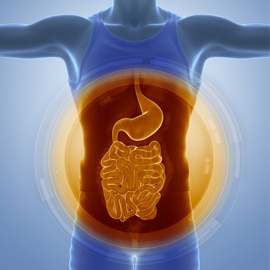Medical Weight Loss Updates: Part 4 – Gut Hormones
Gut Hormones? What does that mean? Why do we care? Well, understanding how our bodies work provides the backbone to the science of obesity medicine. Advances in our knowledge of these hormones will provide new treatment strategies.
 Gut Hormones? What does that mean? Why do we care? Well, understanding how our bodies work provides the backbone to the science of obesity medicine. Advances in our knowledge of these hormones will provide new treatment strategies.
Gut Hormones? What does that mean? Why do we care? Well, understanding how our bodies work provides the backbone to the science of obesity medicine. Advances in our knowledge of these hormones will provide new treatment strategies.
Or, perhaps an understanding of this new science can help explain why some old-time recommendations work.
The Dietitians as CNC have long suggested to our patients that it is helpful to eat slowly, and that as time passes we become more satiated and will tend to eat less if we chew our food more and slow down. It was long thought that this happened at the level of our brain.
Medical research actually has shown how this works. Our guts (stomach, small intestine, large intestine, pancreas, etc) make many substances in response to the foods we eat. Most of the hormones our guts make function to turn off our appetites in response to the foods we eat – i.e., our gut hormones help to signal the end of the meal, help us slow down and feel full. In fact, these gut hormones are far more important in establishing a sense of satiety than the stretch receptors of our stomachs. If we eat to the point that these stretch receptors are firing, we have already likely over-eaten dramatically.
Many of our most powerful natural appetite-suppressing gut hormones are secreted by our distal small intestine and colon. But, it takes food 20-30 minutes to get from our stomach to these areas. Once the food gets there, 3 hormones in particular are released: Glucose-like peptide 1 (GLP-1), Oxyntomodulin (OXM), and Peptide-YY (PYY). These 3 hormones are released in our bloodstream, make their way rapidly to our brains and signal that it’s time to slow down and that the meal is over.
In fact, this signaling is so powerful, it is thought to be a primary mechanism of weight loss following gastric bypass surgery.
Want to benefit from these important gut hormone signals without having a gastric bypass surgery? Eat more slowly! Chew your food 20 times per bite, put down your fork between bites, or use chopsticks. These common, old-timer recommendations really do have a scientific basis. Let your body’s natural appetite suppressing hormones do their work.




